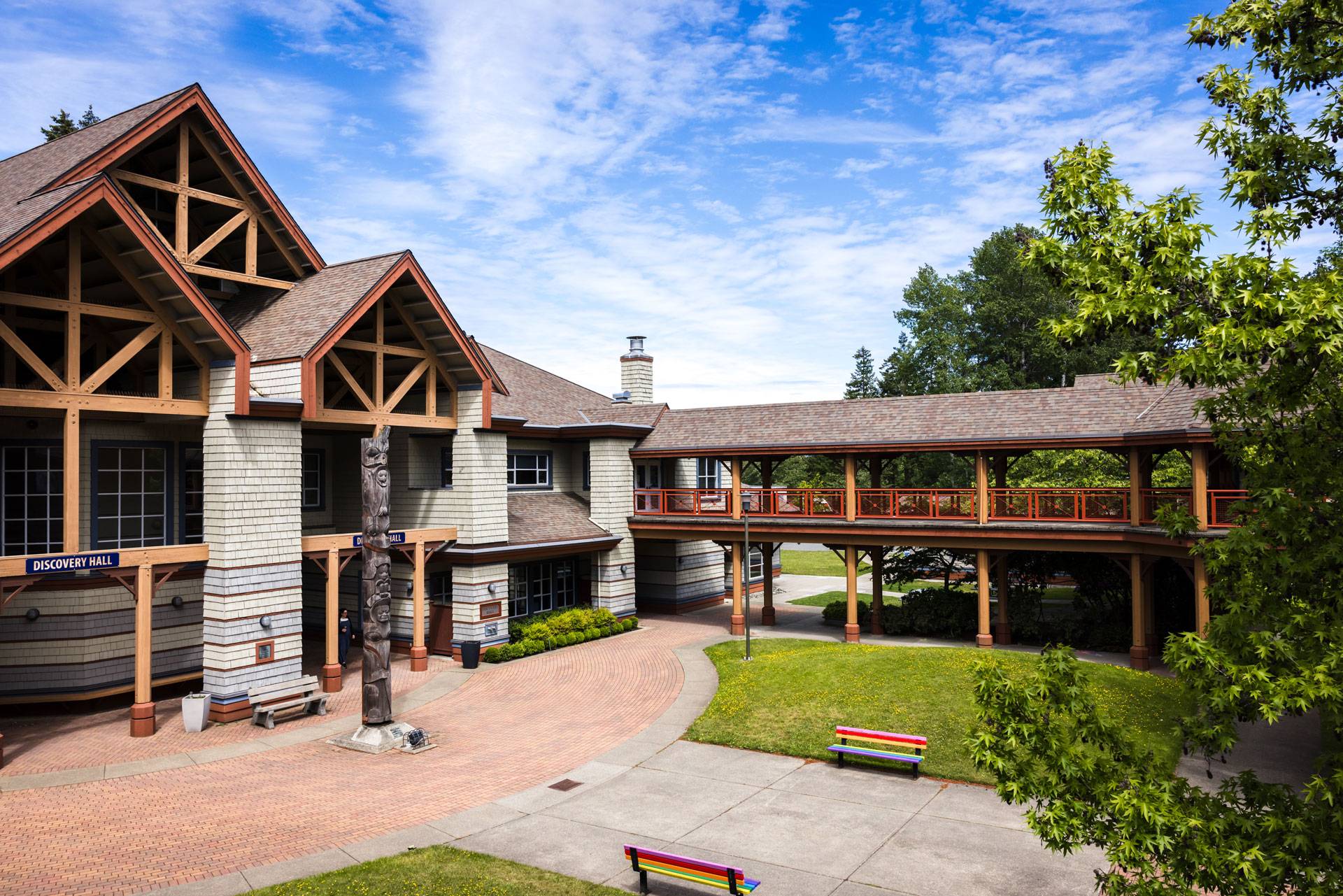After a disturbing sexual assault in the spring of 2014 by a classmate, the last thing Lane Foster wanted to face were challenges when beginning her healing process.
Foster went to UVic’s Counselling Services just days after her attack, where she alleges her counsellor advised her to return home to L.A. and discouraged her from reporting the assault formally, saying instead that Counselling Services would take down the name of her assailant in case the name was brought forward by other students.
The experience left Foster feeling “alone, isolated, and insulted,” planting a seed of doubt that stopped her pursuing any further action against her assailant.
And while Foster’s allegations do not reflect kindly on the university, she is not the only one who’s had such an experience.
United by similar stories, several victims and survivors of sexualized violence at UVic are banding together and establishing a Sexualized Violence Task Force. While the group is too early in its infancy for an official mandate, Foster hopes the group will bring a wider awareness to the plight of its members, as well as hold the university accountable for students feeling disenfranchised with the services at UVic.
With more and more students adding their voices to a call for change from the administration, UVic may be forced to re-evaluate the processes in place and determine whether or not students who have experienced sexualized violence are being treated fairly and mindfully.
The task force is gender-and identity-inclusive, and Foster, currently a fifth-year student studying Political Science and Gender Studies, says she wishes she could have had similar supports earlier in her life.
“Having something action-based is so big for me,” says Foster, who claims the services currently in place make students feel like passive victims. “I don’t feel supported, I feel inspected . . . [and] that’s not healing.”
The university currently has four services in place for students dealing with issues of sexualized violence: Counselling Services, Health Services, Student Affairs, and Campus Security, the latter being the only service required to publish the number of students that report sexual assaults to them. Only 10 such instances have been reported to Campus Security in the past five years.
Jim Dunsdon, the Associate Vice-President of Student Affairs at UVic, understands that the services must cater to the needs of students.
“I think part of it is trying to change the climate in our community so that people feel like they are going to be listened to and valued in bringing forward their experience,” Dunsdon says. “To get there, it’s going to require all of us to work towards that. And [to] do it in a number of ways and be open to hearing other voices and other perspectives . . . making sure that we’re heavily focused on collaboration.”
Over the past year, the university has worked closely with the Anti-Violence Project, an advocacy group tackling gendered violence at UVic. Their most recent collaboration — the Let’s Get Consensual campaign, which is also runs in collaboration with the UVSS — teaches students the fundamentals of consent.
But for all the talk of cooperation, Foster remains unconvinced that the university is pulling its weight when it comes to helping students who have already experienced sexualized violence.
“Words are said,” argues Foster, “but actions . . . haven’t held up for [the] expectations of survivors.”
The university’s response to sexualized violence has been criticized in the past.
In September 2015, following an attempted sexual assault on campus that grabbed local headlines, the UVSS and the Anti-Violence Project chastised the university’s failure to promote the advocacy group as an option for students who had experienced sexualized violence, favouring instead to promote the services of Campus Security and Student Affairs.
Dunsdon later commented that the services that were promoted were “familiar in making referrals” to services like the AVP.
Carol Bilson has been the director of the Anti-Violence Project for the last four years. While she is adamant that collaboration with the administration is crucial in addressing issues of sexualized violence, and that UVic is ahead of many universities in regards to their handling of this issue, Bilson agrees with Foster in that the university needs to show more initiative.
“It would be foolish of us, or naïve of us, to think that just a grassroots transformation is going to happen,” Bilson says. “I think the people in the university have a real will for safety, but I don’t think the structures that are around them support that will.”
“We’re sad that these students have had such a terrible experience, but we’re not surprised either.”
It may be some time before the task force begins formal discussions with the university and any systems or processes are officially reviewed, but with B.C. MLA Andrew Weaver tabling a bill last week to address sexual assaults on post-secondary campuses, and a high-profile sexual assault case dominating Canadian headlines, there will be no lack of conversation around the topic for the next few months.
Foster hopes that the task force will also help other victims and survivors understand that there’s support available. “For people who have been hurt ,” she says, “this is a sad fact , but there are other people like you.”
For Foster and many other students, the university must first acknowledge the harm they have caused.
“I don’t know if I would have felt so alone if the university hadn’t made me feel that way.”
If you are a victim or survivor of sexual assault and a student at UVic, you can get in touch with Lane Foster and the Sexualized Violence Task Force by email at svtaskforce@gmail.com.






